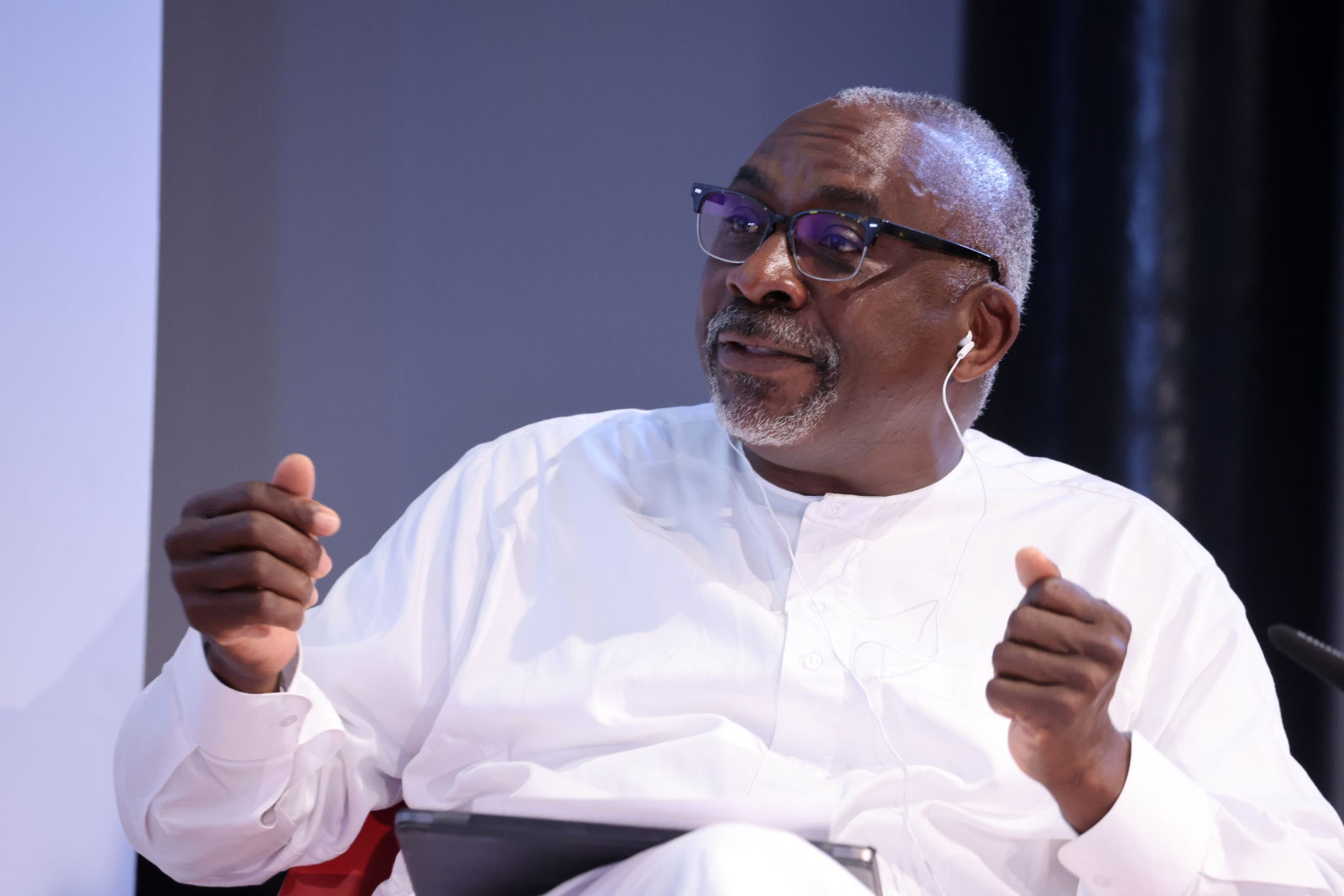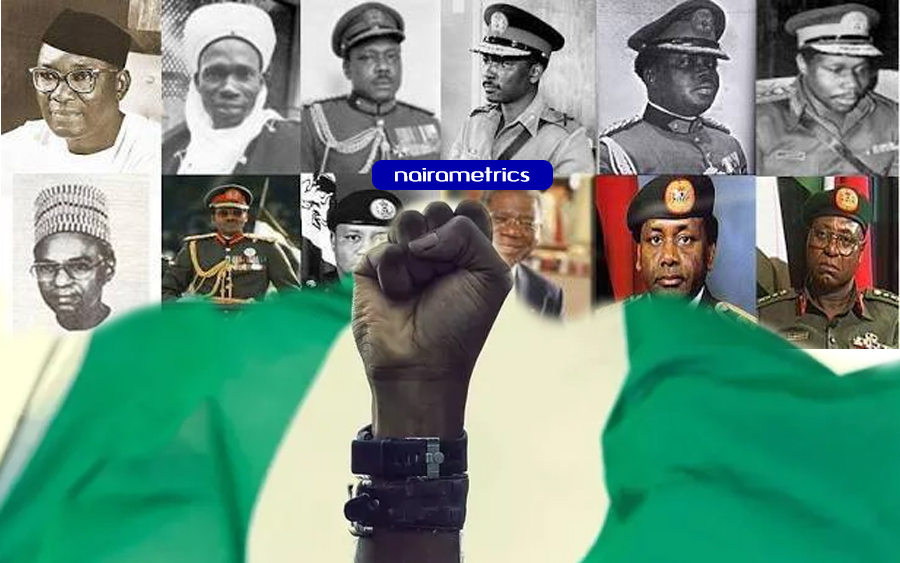As the first African to win the Pulitzer Prize, Dele Olojede set a whole new record. But it was not just with that single feat.
After almost four decades of a vibrant and active journalism career across different countries, continents and governments, Olojede might have investigated and reported virtually everything there is to report. From genocides to dictatorship regimes, corruption, hopeful elections, famines, and virtually any other thing you could imagine, it has been a rich career for the Osun-born journalist.
Dele Olojede was born in 1961 in Modakeke, Ife East local government area of present-day Osun State, Nigeria. He studied at the University of Lagos and later earned a master’s degree in journalism at Columbia University.
From summer intern to a travelling reporter
Between 1982 and 1984, Dele Olojede was a reporter at the National Concord Newspaper in Lagos, Nigeria. He also worked as a founding staff writer and assistant editor at Newswatch, a Lagos weekly news magazine, between 1984 and 1987.
While at the Newswatch, he wrote the 1986 award-winning investigative report that resulted in the freeing of the internationally known Nigerian musician, Fela Kuti, and the dismissal of the federal judge who had sentenced him to prison on trumped-up charges. All of these were, however, on the Nigerian scene.
Olojede’s international journalism career started on June 6, 1988, when he became Newsday’s Africa Correspondent as a Summer intern. He learnt very fast and soon became a special writer covering minority affairs. He was on loan to the foreign desk in 1992 when he made his first trip to South Africa and produced several reports that attracted attention and commendations. He was later also promoted to Newsday’s United Nations Bureau Chief and covered even more international stories before his posting in Johannesburg, South Africa.
As foreign editor of Newsday, he covered several international happenings across several countries. Notable among his reportage is the Rwandan genocide of 1994 as well as the post-genocide experience of several survivors. In 2005 he received journalism’s highest honour, the Pulitzer Prize, for his coverage of the aftermath of the Rwandan genocide.
Olojede left Newsday in December 2004.
The NEXT Journey
After leaving Newsday, Dele Olojede set out to found a groundbreaking investigative newspaper – NEXT. The newspaper publication was launched to “provide news and informed opinion fairly and accurately to the Nigerian public in any land, based on the best judgment of the editors, and in a way that serves the public purpose and is compatible with the demands of an open and democratic society.”
Speaking about his decision in an interview, Olojede said: “I decided to do a newspaper that will be an anti-corruption and investigative newspaper in a corrupt society. We wanted to demonstrate that it was possible to run an institution that was not based on corruption at all.”
NEXT was published first on a tweet on Twitter in December 2008. Its website went live two weeks after, while the first print edition appeared on the stands on 4 January 2009.
Olojede’s work with NEXT earned him the John P. McNulty Prize in 2011, a prize reserved for fellows who have created a project to solve pressing social problems using innovative entrepreneurial techniques.
To make the publication wholly Nigerian, Olojede did not raise money from foreign investors but this choice would later turn against him when the political and business elites who came under the investigative radar began to put pressure on the investors.
Olojede later said of his NEXT adventure:
“If it had been foreign money, it would have been impervious to this type of pressure. We were excellent newspapermen but poor businessmen. We failed dramatically on the sustainability and vision of something meant to last. Another mistake was to go into printing when we could have started with NEXT234.COM”
Unfortunately, NEXT ceased publication in September 2011 due to its numerous challenges and financial pressures and that marked the end of a 5-year journey of trying to demonstrate the centrality of an incorruptible media to a democratic society beset by rapacious elites.
Awards and recognitions
Recognition for Dele Olojede started quite early. Even before leaving Nigeria in 1987 for his Master’s degree studies at Columbia University, he won a $26,000 Ford Foundation Scholars grant. While studying, he again won the Henry N. Taylor Award as an outstanding foreign student.
His rich and interesting career also came with awards and recognitions. In 1992, he received the Unity Award from Lincoln University; the Clarion Award from Women in Communications; the Media Award from the Press Club of Long Island; and several awards from the New York Association of Black Journalists.
In 1995, Dele Olojede also clinched the Publisher’s Award from Newsday, as well as the Educational Press of America Distinguished Achievement Award for Excellence in Educational Journalism.
In 2009, he was awarded the Distinguished Alumni Prize of Columbia University, and then he received the 2010 prize for Ethical Business Leadership from the Global Forum for Ethics in Business, courtesy of his NEXT publication.
Other activities
Olojede was involved in several activities outside his regular journalism, but for the most part, it was some form of public service or the other. In 2019 he hosted the inaugural Africa In the World festival of hearts and minds, at Spier Wine Farm, in Stellenbosch, South Africa, bringing together global thinkers and innovators in communion with select African leaders to attempt to solve significant problems.
He served on the board of EARTH University in Costa Rica, The Mark Up, in New York, Edesia Nutrition, in Providence, Rhode Island, and on the advisory board of Luminate, the civic investment arm of the Omidyar Network. He was also a moderator of leadership seminars for the Aspen Global Leadership Network and a Fellow of the Africa Leadership Initiative South Africa. He is chairman of the board of Kashim Ibrahim Fellowship, which identifies and nurtures emerging young leaders in Nigeria.
He is a fellow of the Aspen Global Leadership Network and is currently building a platform for long-form writing about the African world.















